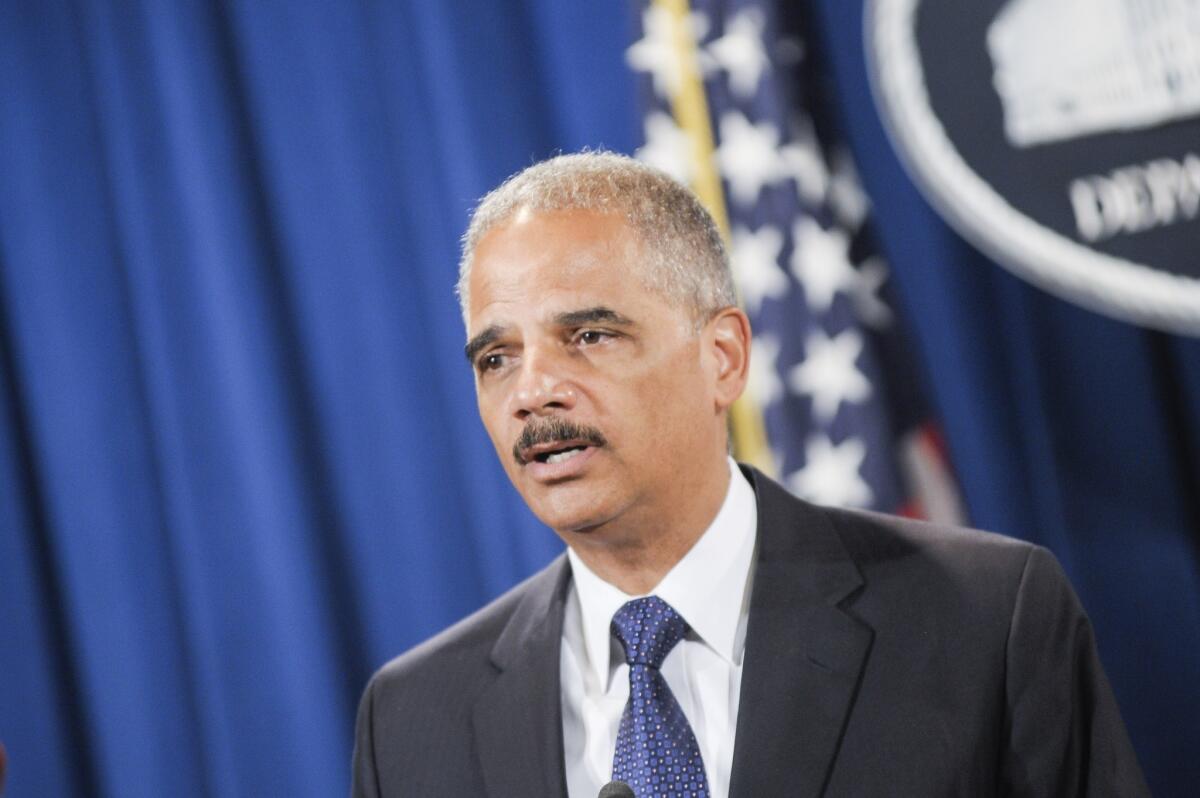Note to Atty. Gen. Holder: Even bad laws merit a defense

- Share via
The six state attorneys general who have declined to defend their states’ bans on same-sex marriage in court got some encouragement this week from U.S. Atty. Gen. Eric H. Holder Jr. In a speech to the National Assn. of Attorneys General, Holder said that it was sometimes appropriate for attorneys general to abandon their usual obligation to defend the constitutionality of state laws.
This page supports same-sex marriage unreservedly. But even so, we worry that Holder’s comments will embolden additional state attorneys general — Republicans and Democrats, liberals and conservatives — to pick and choose which of their states’ laws they will defend in court.
To be fair, Holder said that attorneys general shouldn’t refuse to defend a law merely because of “policy or political disagreements”; there must be “firm constitutional grounds.” Yet when attorneys general are elected, as in 43 states, the temptation will be to transmute a popular political stand into a constitutional objection.
Even if Holder is right that attorneys general should refuse to defend state laws in “exceedingly rare” circumstances, those laws ought to be defended by someone. As challenges to California’s Proposition 8 wended their way through the courts in 2011, this page worried that the refusal of the governor and attorney general to defend it would mean that it wouldn’t get its day in court.
“Proposition 8 should die in the courts,” we wrote. “But it should fail on its merits — its discriminatory withholding of the right to marry — rather than because the officials who could have defended it wouldn’t and no one else was allowed to step in.”
Our concern proved prophetic. Last year the Supreme Court ruled that Proposition 8’s supporters lacked legal standing to appeal a lower-court decision striking it down. Because the effect of the ruling was to revive same-sex marriage in California, opponents of Proposition 8 might see this as a case of “all’s well that ends well.” They probably would react differently, however, if a future attorney general refused to defend the constitutionality of statutes that treat attacks on gays and lesbians as hate crimes.
Holder noted that the Justice Department declined to defend the Defense of Marriage Act, which was struck down by the Supreme Court last year. What he didn’t say is that DOMA was defended by lawyers for the House of Representatives, and that the Supreme Court accepted their participation — making it possible for the court to render a judgment on the merits as it had failed to do in the Proposition 8 case. We would be more comfortable with state attorneys generals choosing not to defend a law if they were required to designate another lawyer to do so. We wish Holder had made that point.
More to Read
A cure for the common opinion
Get thought-provoking perspectives with our weekly newsletter.
You may occasionally receive promotional content from the Los Angeles Times.










